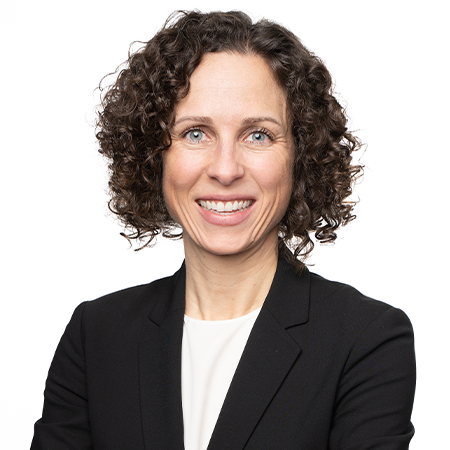- At COP26 in November 2021, the IFRS Foundation announced the establishment of the International Sustainability Standards Board (ISSB), a new organization tasked with developing a global baseline of sustainability disclosure standards to meet investors’ information needs.
- In March 2022, the ISSB published two Draft Standards, IFRS S1 General Sustainability-related Disclosures (“S1”) and IFRS S2 Climate-related Disclosures (“S2”). After reviewing feedback throughout the second half of 2022, the ISSB announced in February 2023 that it had finalized the technical content of S1 and S2 and expects to publish the Standards in Q2 2023.
- The Standards will become effective for annual reporting periods beginning on or after January 1, 2024, which means that we can expect to see the first disclosures aligned with the IFRS Sustainability Disclosure Standards to be published in 2025. Decisions to make the sustainability disclosure standards mandatory or not will reside with individual jurisdictions.
The Inaugural IFRS Sustainability Symposium
On February 16 and 17, 2023, RBC sponsored the inaugural IFRS Sustainability Symposium in Montreal. The two-day event convened global businesses, investors, service providers, and policymakers to discuss progress towards a global baseline of sustainability disclosures. The main day of the Symposium began with several notable updates related to the two Draft Standards, S1 and S2. After receiving over 1,400 comment letters and conducting extensive consultations, Emmanuel Faber, Chair of the International Sustainability Standards Board (ISSB), announced that the ISSB had finalized the technical content of S1 and S2. The Standards will now enter a drafting and approval process and are expected to be published toward the end of Q2 2023. The Standards will become effective for annual reporting periods beginning on or after January 1, 2024, which means that we can expect to see the first disclosures aligned with the IFRS Sustainability Disclosure Standards to be published in 2025.
Here are our top three takeaways from the IFRS Sustainability Symposium:
1) Moving from Voluntary to Mandatory Sustainability Disclosures
As a next step, the International Organization of Securities Commissions (IOSCO), the international body that brings together the world’s securities regulators and is recognized as the global standard-setter for the securities sector, will review the IFRS Sustainability Disclosure Standards for potential endorsement. IOSCO welcomed the ISSB’s decision to finalize the Standards and plans to move forward with its independent assessment with a view to completing its review in 2023. While endorsement by IOSCO is anticipated to encourage the adoption of the Standards around the world, regulatory decisions will be made on a jurisdiction-by-jurisdiction basis. A number of countries, including Australia, Brazil, Canada, Japan and South Korea have established, or are in the process of establishing, sustainability standards boards that will enable them to cooperate with the ISSB. In the period before the Standards come into effect, companies are encouraged to continue using and adopting the SASB Standards, TCFD Recommendations, CDSB Framework and Integrated Reporting Framework. The ISSB has built on the work of these market-led, investor-focused reporting initiatives, and companies that report in alignment with these standards are expected to be well-positioned to use S1 and S2 in the future.
2) Climate First, but Not Climate Only
IOSCO and governments around the world have emphasized the need for standards that enable companies to disclose information about sustainability-related risks and opportunities, starting with climate, to support financial stability and investor protection.[1] During his opening remarks at the Symposium, Faber noted that the Standards would focus on “climate first, but not climate only”. While IFRS S1 sets out general reporting requirements around the disclosure of material sustainability-related risks and opportunities, IFRS S2 provides specific guidance on the disclosure of climate-related risks and opportunities and incorporates the TCFD Recommendations and SASB Standards’ climate-related industry-specific topics and metrics. In Q2 2023, the ISSB plans to consult on priorities beyond these initial Standards and seek feedback in four areas: biodiversity, ecosystems and ecosystem services; human capital; human rights; and connectivity in reporting.
3) Capacity-Building, Guidance, and Reliefs
The ISSB’s stakeholder consultation process for S1 and S2 revealed a need for further support and guidance to enable the effective application of the proposed Standards. The importance of capacity-building support, especially for smaller companies, came up throughout discussions at the Symposium. Recognizing the need to develop a truly inclusive baseline for global sustainability disclosures, the ISSB has appointed a second Vice-Chair to focus on capacity-building for small and medium enterprises. Prior to finalizing the technical content for S1 and S2, ISSB members agreed to include the Global Reporting Initiative (GRI) and European Sustainability Reporting Standards (ESRS) within an appendix to S1 as sources of guidance that companies may consider. The ISSB also decided on a package of reliefs to help support use of the Standards: for the first annual reporting period, companies will not be required to report sustainability-related financial disclosures at the same time as financial statements, measure GHG emissions according to the GHG Protocol, or disclose Scope 3 GHG emissions.
Closing Thoughts
With the finalization of the technical content of S1 and S2 now complete, the Standards will move forward to the drafting and approval process and become effective for annual reporting periods beginning on or after January 1, 2024. While the decision to make the sustainability disclosure standards mandatory or not will reside with individual jurisdictions, commentators at the IFRS Sustainability Symposium were optimistic with regards to the expected pace of regulatory adoption. While speaking on a panel titled “A global baseline: just around the corner or a pipe dream?” Martin Moloney, Secretary General of IOSCO, noted that although there will be a range of implementation timelines across jurisdictions, he expects regulatory adoption to proceed “at quite a fast pace around the world.”[2]
[1] https://www.ifrs.org/news-and-events/news/2023/02/issb-ramps-up-activities-to-support-global-implementation-ahead-of-issuing-inaugural-standards-end-q2-2023/
[2] IFRS Sustainability Symposium (February 17, 2023). “Panel 2: A global baseline: just around the corner or a pipe dream?”

